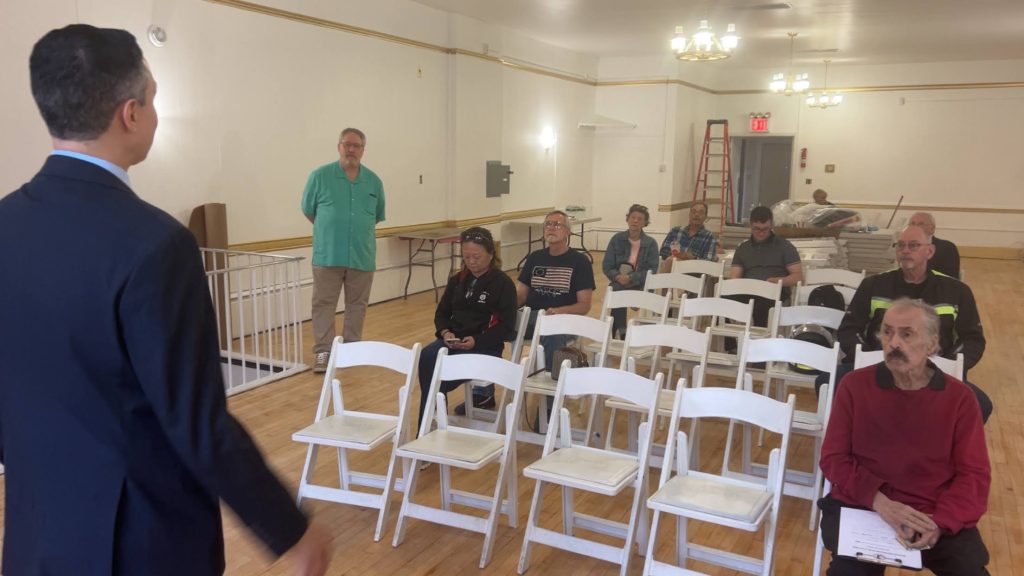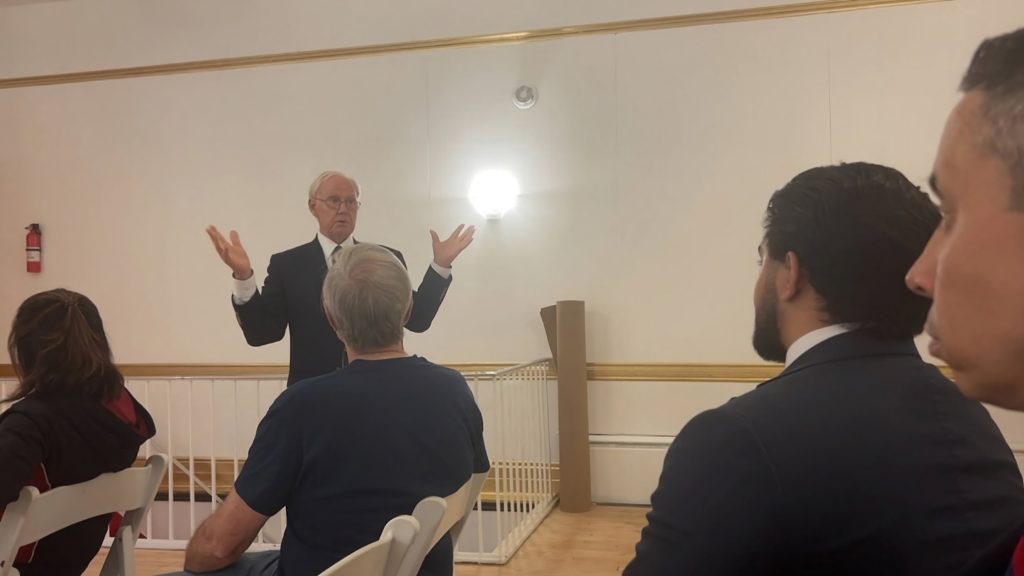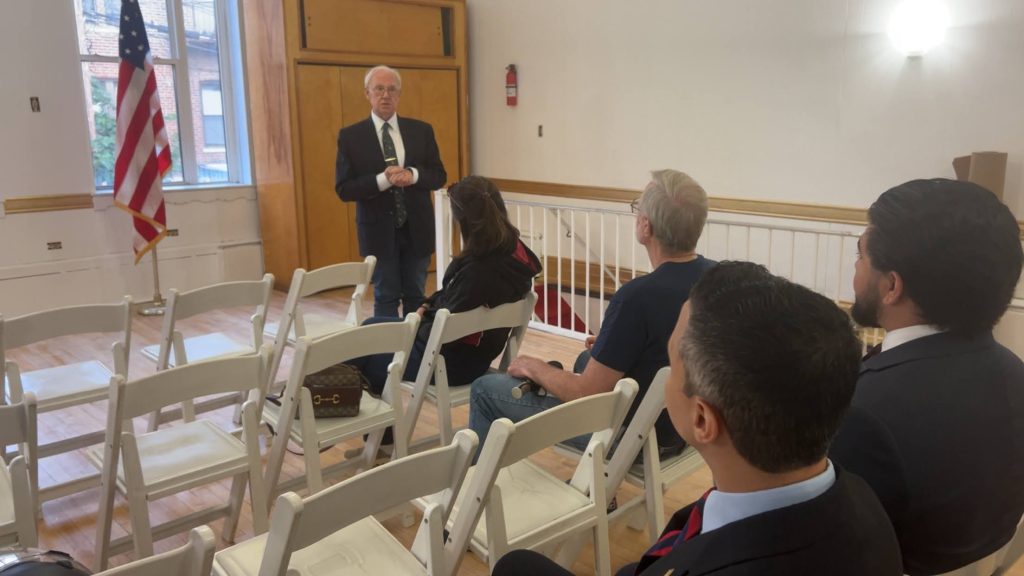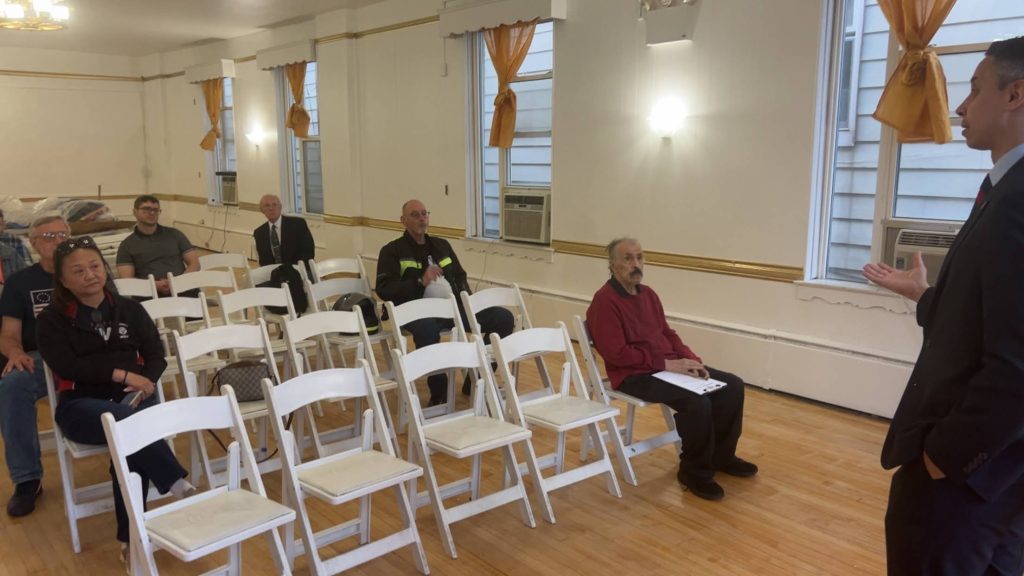By Christian Spencer
At their final meeting before a summer recess, the Ronald Reagan Republican Club of Astoria gathered at the Rocco Moretto VFW Post 2348 on June 10 to confront the looming fiscal cliffs facing Social Security and Medicare, and the political gridlock making reform nearly impossible.

The evening’s featured speaker, Jay Townsend, a political consultant, speechwriter, debate coach, and marketing and advertising strategist, drew comparisons between today’s congressional deadlock and the bipartisan cooperation of the Reagan–Tip O’Neill era.
But in this climate, he said, “it won’t happen until they have to do it.”
Townsend expanded on his warning, saying, “It’s the problems that haven’t been attended [to that] will eventually force and demand a solution.”
He cited immigration reform as an example: one that could have been addressed under a Republican trifecta in 2017.
“They didn’t fix it. And you know why? Because a lot of Republican interests love that cheap immigrant labor,” he said.
Asked whether a catastrophe would be required to move the country forward—akin to the Civil War, the Great Depression, or 9/11—he didn’t flinch: “Something has to break the dam.”
He added that the U.S. political system’s built-in gridlock contrasts sharply with China’s authoritarian model, where “Xi Jinping can impose pain and move money around without challenge.”

At the center of the discussion was the Social Security trust fund, projected to run out of money within the next eight years.
“Some people are going to pay more in payroll taxes,” the speaker said. “They may even means-test it to keep the program going.” But no action will come, he added, until the crisis is imminent.
Both Democrats and Republicans, he argued, are operating in denial. “In places where [Democrats] have power, they can’t govern… There’s no brake on how far left the left will go.” Meanwhile, Republicans face mathematical impossibilities, saying, “Cut taxes, cut spending, cut entitlements, and not raise the debt ceiling? You can’t do that anymore.”
When asked what advice he’d offer young people considering public office, he laid out two paths: the traditional climb up the ladder, and the social media fast-track.
Townsend cited Senator Chuck Schumer as the archetype of the old-school route, contrasting him with younger candidates like Zohran Mamdani who, despite being ideologically opposite of him, acknowledges that the progressive assemblyman’s ability to “start a campaign focused on one thing and build a following that way.”

Among the attendees was John Healy, a candidate running for the New York City Council representing District 26 as a member of the Republican Party and the Conservative Party.
Although his candidacy against incumbent City Councilwoman Julie Won is considered a long shot in this predominantly blue area—comprising the neighborhoods of Long Island City, Sunnyside, Astoria, and Woodside—Healy believes he offers a compelling alternative to someone who may not resonate with her constituents.
“I’ve been on the ground. I’ve been meeting a lot of people, both in the community, both in the city associations. They’re all Democrats, but they’re not very keen on or really thrilled with who’s running things now. I mean, come to ’21,” Healy said. “So I’m going to go out there and do my best and do what I have to do to be a voice for the people, a voice for the community, a voice for my neighborhood, where I’m from.
And I’ll leave the rest in God’s hands.”

Regardless of the outcome, Townsend warned that elected office in a democracy demands caution: “Every member of Congress wants most after they’ve been elected… to get reelected.”


